Watch your teen thrive as they gain the tools to manage anxiety and embrace a fulfilling, balanced life. At WayPoint Academy, we take a holistic approach that goes beyond addressing anxiety to support your teen’s emotional well-being, social connections, and academic progress. Our compassionate team of experts collaborates with each student to design a personalized treatment plan tailored to their unique challenges and goals. Through a combination of evidence-based therapies, structured academic support, and experiential learning opportunities, your teen will build confidence, develop resilience, and rediscover the joy of connection and achievement. Together, we help teens unlock their potential and create a foundation for lasting success.
Treating Anxiety in Teens Through Expert Care and Support at WayPoint Academy
Teens at WayPoint Academy receive specialized support to address the unique challenges of severe anxiety and OCD. These young people often face intense fear and worry that disrupt their daily lives, relationships, and academic progress. Through a comprehensive residential treatment program focused on treating anxiety in teens, teens gain access to evidence-based therapies, like Exposure and Response Prevention (ERP), along with accredited academics, medication management when needed, and activities designed to foster physical, emotional, and social well-being. Families see their teens empowered with the skills and resilience needed to overcome anxiety, reclaim their lives, and embrace a brighter future. In a safe and supportive environment, teens connect with peers who understand their struggles and benefit from the guidance of a dedicated team of professionals committed to helping them succeed.

Why Families Choose WayPoint Academy
WayPoint Academy's approach to treating anxiety in teens is chosen by families because of its innovative approach to helping teens overcome challenges in a supportive and engaging environment. Located in the breathtaking Ogden Valley of Utah, WayPoint Academy leverages its scenic surroundings to provide students with unique outdoor and off-campus experiences as part of exposure therapy. These activities help students face and navigate real-world challenges in a controlled, therapeutic setting, fostering growth and resilience.
WayPoint Academy stands out as a coed residential treatment center where boys and girls participate in nearly every activity together. This integrated approach is particularly valuable for teens struggling with social anxiety, as it provides natural, daily opportunities to practice interacting with the opposite sex in a safe, guided environment. These experiences build confidence and equip students with essential social skills for life beyond treatment.
At the heart of WayPoint Academy is a deeply committed team of professionals who see their work as more than just a job. Each staff member is passionately invested in the success and well-being of every student, creating a nurturing atmosphere where teens feel understood, supported, and empowered to thrive.
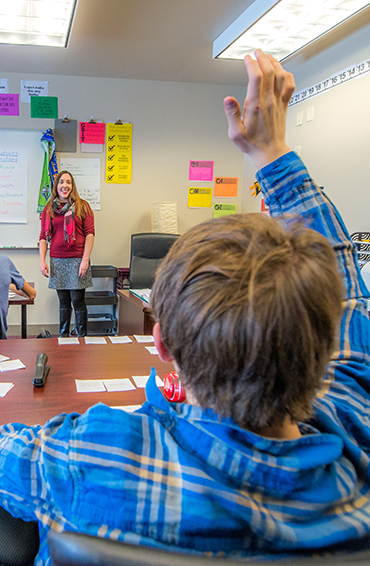
WayPoint’s Approach to Anxiety Treatment

A Comprehensive and Individualized Treatment Plan
- Biopsychosocial Evaluation: Surveys that are conducted by therapists at the beginning of mental health treatment. They are used to help the therapist understand how biological, psychological, and social factors impact a student’s thoughts, feelings, and behavior. The process of biopsychosocial evaluation allows students to receive holistic treatment to address the root causes of their mental health struggles.
- Biological questions address areas such as genetics, physiology, and neurology. For example, questions might focus on diet, sleep habits, or family medical history.
- Psychological questions explore personality, thoughts, emotions, and behavior, including current cognitive functioning, coping skills, and mood.
- Social questions examine interpersonal and environmental influences on thoughts, feelings, and behavior, including family relationships, financial stability, and educational background.
- Psychological Testing: Psychological testing measures and observes behaviors, emotions, and thoughts to determine the cause, severity, and duration of symptoms. This helps clinicians devise an effective treatment plan tailored to each student.
- Direct Observation: Mental health professionals observe the students in school or other activities, to better identify their needs and adjust their treatment plan as needed.
Tailored Academic Plans
At WayPoint Academy, a robust academic plan is carefully designed to support each student’s unique needs and goals. The plan is tailored to the student’s current abilities and aspirations and evolves alongside their growth and progress. In treating anxiety in teens, those with Individualized Education Programs (IEPs) are provided with the support they need to thrive academically, ensuring they stay on track with their education. The team collaborates with school districts to help students stay on track and achieve their credits, easing the transition back to their home schools.
Teens are empowered to work toward their academic goals while also receiving therapeutic support. For example, teens struggling with social anxiety may have academic plans that include opportunities to practice social skills in safe and supportive settings.
Regular meetings between academic, medical, and clinical teams ensure that academic progress aligns with the teen’s evolving needs, making the transition back to their home school smoother and more successful. This approach helps teens grow academically while also addressing their personal challenges.


Evidence-Based Therapeutic Modalities at WayPoint
- Exposure and Response Prevention (ERP): ERP is a type of therapy that is very helpful when treating anxiety in teens. It involves gradually exposing individuals to the things they fear or avoid while preventing them from engaging in their usual compulsions or avoidance behaviors. WayPoint integrates ERP into all aspects of its program, including individual and family therapy, residential life, and outings. Therapists work with residential staff to help students with their exposures, and students practice exposures on outings.
- Dialectical Behavior Therapy (DBT): DBT is a type of therapy that teaches individuals skills to manage their emotions, tolerate distress, improve interpersonal relationships, and increase mindfulness.
- Cognitive Behavioral Therapy (CBT): CBT is a type of therapy that focuses on identifying and changing negative thoughts and beliefs that contribute to psychological distress.
- Acceptance and Commitment Therapy (ACT): ACT is a type of therapy that encourages individuals to accept their thoughts and feelings without judgment, and to focus on living a meaningful life in accordance with their values.
- Trauma-Informed Therapy: Trauma-informed care recognizes the impact of trauma on individuals' mental and emotional health, and seeks to create a safe and supportive environment for healing.
Is it normal teenage behavior or is it something else? These assessments may help you know how much your teen's and family's life are being affected by anxiety.
Mindful Completion Model
The Mindful Completion Model (MCM) at WayPoint Academy is a unique therapeutic approach designed to address anxiety by replacing avoidance with purposeful completion. This model is central to WayPoint's philosophy of care, aiming to reverse the cycle of avoidance that often accompanies anxiety disorders. The MCM integrates mindfulness, which emphasizes being present in the moment with intent, rather than retreating from experiences and fears.

Key aspects of the Mindful Completion Model include:
- Challenging Negative Beliefs: The MCM actively challenges long-standing negative beliefs through strategically designed events in the present moment. Instead of removing stressors, students are supportively exposed to them at optimal times. By facing and completing challenges, students gain experience, confidence, and emotional endurance.
- Individualized Therapeutic Goals: Therapeutic goals are designed by the treatment team to meet individual student needs. For example, a student with social anxiety may have a goal to visit a crowded mall while practicing relaxation techniques, accompanied by their therapist and peers.
- Eight Elements of Skill Development: The model focuses on skill development through eight key elements that address therapeutic tools, tasks, personal responsibilities, and practical life skills. These skills range from learning to cook, ski, or snowboard to orienteering, canyoneering, and organic gardening. This combination of required and designed completions serves as the individual treatment plan.
- Emphasis on Completion: The MCM emphasizes the importance of completing tasks and goals, as opposed to avoidance. This helps students develop a sense of accomplishment, build self-esteem, and form a positive identity.
- Integration of Academics: WayPoint’s academic program is also designed to promote completion, with teachers and therapeutic staff utilizing a strategic approach to help students achieve educational goals. The program’s focus on completion practices ensures that students who are struggling with anxiety and avoidance in academics are supported in achieving their learning goals.
- Practical Life Skills: The model includes practical life skills that range from basic tasks to complex responsibilities, including skills like knot-tying, table etiquette, and community involvement. These skills promote independence, successful outcomes and a positive self-image.
- Executive Function Skills: The program develops executive function skills through activities like meal planning and preparation. These skills are critical for initiating tasks, planning, organizing, strategizing, goal directed persistence, flexibility, metacognition, and time management.
- Mind-Body Connection: The Mindful Completion Model emphasizes the connection between mind and body through nutritional education and exercise. The program involves students in meal planning and preparation, with an emphasis on understanding the benefits of good nutrition and a healthy diet. Regular cardiovascular exercise is also part of the program, which helps improve mood, reduce anxiety and enhance learning.
The Mindful Completion Model aims to provide students with a comprehensive, experiential approach to overcoming anxiety. Through purposeful activities and mindful engagement, students learn to challenge avoidance, build resilience, and develop a positive sense of self.
Integrating Anxiety Treatment Across All Aspects of Life
At WayPoint, treating anxiety in teens is not confined to therapy sessions alone. It is woven throughout every part of a teen’s experience, ensuring that therapeutic skills are practiced and reinforced in real-life settings. From the classroom to residential life and community outings, teens are supported in applying coping strategies in a variety of environments. This holistic approach allows them to strengthen their progress, build confidence, and develop lasting skills for managing anxiety in everyday situations.

Therapy Sessions
Teens receive personalized therapy sessions tailored to their specific needs, with support from therapists who bring years of specialized experience in treating anxiety. These therapists use evidence-based practices to help teens address anxiety, empowering them to apply therapeutic skills to real-life situations. With a deep understanding of anxiety’s impact, therapists collaborate with staff to ensure consistent support, adjusting treatment plans as needed to meet the evolving needs of each teen. This approach provides teens with the highest level of care, reinforcing their therapeutic progress in various settings and equipping them with lasting coping strategies for managing anxiety.
Residential Life
Teens benefit from a residential environment where staff are trained to support their anxiety treatment and help them face fears safely. Open communication between therapists and residential staff ensures consistent care, while the co-ed setting provides daily opportunities for teens to practice social skills, build confidence, and apply coping strategies in real-life situations. This integrated approach helps teens reinforce their therapeutic work and practice their skills outside of formal therapy.
Academics
Recognizing that anxiety and OCD can impact academic performance, WayPoint’s academic staff provides individualized plans that support both academic progress and therapeutic needs. Teens receive personalized academic support that adapts to their learning style while offering opportunities to practice ERP, such as giving presentations or participating in class activities. Teachers collaborate with therapists to identify strategies that address both academic and therapeutic challenges, ensuring teens receive the support they need to succeed.
Experiential Learning and Outings
Teens have the chance to face their fears in real-world settings through outings and experiential learning activities. Whether navigating public transportation, engaging in social outings, or tackling nature-based challenges, these experiences are designed to help teens build confidence, generalize therapeutic skills, and reduce avoidance behaviors. With support from trained residential staff, these outings create meaningful opportunities for teens to apply what they’ve learned in therapy to everyday situations.
Is it normal teenage behavior or is it something else? These assessments may help you know how much your teen's and family's life are being affected by anxiety.
Parent Involvement in the Healing Process
WayPoint's approach to parent involvement involves more than just communication between parents and staff. The program integrates parents into various aspects of the therapeutic process, ensuring they are well-equipped to support their teen's recovery even after they return home.
- Weekly Family Therapy Sessions: These sessions are conducted via video call and allow the therapist, the teen, and the parents to work together on addressing the teen’s challenges. Family therapy provides a platform for open communication, shared understanding of the teen’s progress, and collaborative development of coping strategies.
- Semi-Monthly Parent Support Groups: Through these video calls, parents connect with others facing similar challenges, share experiences, and gain emotional support. These groups offer a sense of community, alleviating the isolation often felt by parents of teens with severe anxiety and OCD.
- Parent Seminar Days (2-3 times per year): These in-person events held on campus provide in-depth education on various aspects of anxiety, OCD, and other co-occurring conditions. Parents can interact with clinicians and staff, gain valuable insights, and ask questions specific to their teen’s needs.
- Parent Psychoeducation Classes (1-2 times per month): These classes, held through video call, offer supplementary information and resources to further enhance parents’ understanding of their teen’s condition and the treatment process. This equips parents with the knowledge and skills needed to provide continued support at home.
- Gradual Family Integration: As the teen progresses through the program, structured opportunities for family interaction are introduced. On-campus visits allow families to spend quality time together in a supportive environment. Community outings provide opportunities to practice coping skills in real-world settings, with parental support. Eventually, home visits are incorporated, facilitating a smoother transition back into the family environment.
- Continued Support After Discharge: While therapy sessions formally end after the teen leaves WayPoint, parents can still reach out to the therapist for advice and support. WayPoint also focuses on connecting families with local therapists and resources before the teen returns home, ensuring continued care and a smooth transition.

This multi-faceted approach to parent involvement emphasizes the crucial role families play in the recovery journey. It ensures parents are active participants in the treatment process, enabling them to understand, support, and advocate for their teen effectively. This also empowers families to maintain a supportive and healing environment at home, even after the teen completes the program.
Preparing Teens for Life After Waypoint
Teens at WayPoint gain the skills and support they need to transition successfully back home, with parents receiving guidance and resources to support this process.

- Connecting Families with Local Resources: Teens and their families are set up for continued success by gaining access to local treatment options. With guidance from WayPoint, parents and educational consultants identify the right community-based programs—such as day programs or intensive outpatient options—that provide ongoing support tailored to their teen’s needs.
- Gradual Transition Back Home: Teens ease back into their home environment through a structured process that allows them to apply their new coping skills in real-world situations.
- On-campus visits provide families with opportunities to reconnect and strengthen bonds in a supportive setting. Parents and teens can practice communication and coping strategies together, building confidence for life after the program.
- Community outings allow teens to test their skills in everyday situations, such as interacting in public spaces or navigating social scenarios, while parents support them through these experiences.
- Home visits give teens the chance to rejoin family life for short periods while still receiving WayPoint's structured guidance, helping them adapt gradually to the responsibilities and routines of home.
- Continued Support for Parents: Parents remain supported even after their teen completes the program. They have access to their teen’s therapist for advice and guidance, empowering them to address challenges that may arise during the adjustment period. Additionally, families are connected with local therapists and resources to ensure seamless ongoing care.
These opportunities help teens and their parents feel prepared and confident as they move forward. By focusing on gradual reintegration, practical skill-building, and consistent family involvement, families can maintain the progress made at WayPoint and support their teen's continued success.
Contact WayPoint Academy today to learn how our specialized anxiety treatment program can guide your teen towards a brighter, more fulfilling future.
Choosing the Right Residential Program for Your Anxious Teen
At WayPoint Academy, we understand the immense challenge of finding the right residential treatment center for a teen struggling with anxiety. As a parent, your top priority is ensuring your child receives the specialized, comprehensive care they need to overcome their anxiety and reclaim their well-being.

When evaluating residential programs, there are several key factors to consider to determine if WayPoint Academy is the best fit for your family:
- Specialized Expertise in Anxiety Disorders - Not all residential programs are created equal when it comes to treating adolescent anxiety. At WayPoint, our clinicians have extensive experience and specialized training in evidence-based therapies like cognitive-behavioral therapy (CBT) and exposure response prevention (ERP) - the gold standards for managing anxiety.
- A Supportive, Therapeutic Environment - The setting and atmosphere of a residential treatment center can have a profound impact on a teen's ability to heal. WayPoint Academy provides a calming, nurturing environment that feels like a home away from home, with ample opportunities for personal growth and self-discovery.
- Collaborative, Multidisciplinary Care - Overcoming severe anxiety requires a treatment team approach. Our residential program brings together therapists, counselors, social workers, and psychiatrists to address your teen's needs from every angle. You can trust that we'll work closely with your family throughout the treatment process.
- Family-Centered Approach - At WayPoint, we recognize that family support and involvement are crucial to a teen's long-term recovery from GAD. That's why we make family therapy, parent education, and caregiver collaboration central components of our residential program.
- Accreditation and Licensing - When it comes to your child's care, quality and safety are non-negotiable. WayPoint Academy is fully accredited by the Joint Commission and licensed by the state of Utah to provide the highest standard of residential treatment for adolescents with anxiety disorders.
If your teen is struggling with debilitating worry, fear, and avoidance due to anxiety, WayPoint Academy may be the answer you've been searching for. Contact our admissions team today to learn more about our specialized program and determine if it's the right fit for your family.
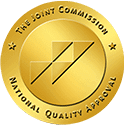
Backed by The Joint Commission which ensures programs adhere to the highest quality of clinical and medical practices.

Designated as a NATSAP Research Program, showing our commitment to well-researched practices in our program.

Full member of the National Association of Therapeutic Schools and Programs (NATSAP), which ensures regulation of programs that serve children and adolescents.
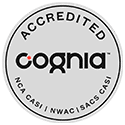
This program is proud to be Cognia Accredited. Cognia provides accreditation to schools that have earned recognition for their reputation and high educational standards.

WayPoint Academy is fully licensed in the state of Utah.

Waypoint Academy is a certified Student and Exchange Visitor Program (SEVP), allowing us to welcome and support international students.
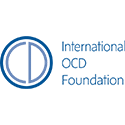
Full Member of the International OCD Foundation, which ensures our staff has access to the most up-to-date OCD treatment practices and research.
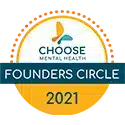
Founding member of Choose Mental Health, guiding families with questions about mental health.

